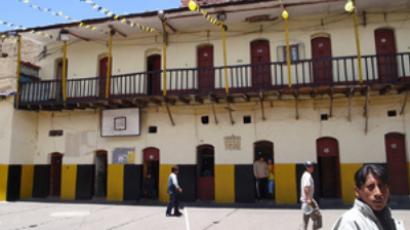Difficult life awaits returning American soldiers
As thousands of American troops prepare to return from a war zone, there could be many ugly and unexpected consequences. Multiple deployments and insufficient treatment has led some recent vets to end up on the street.
In San Diego, California, thousands of vets from the Afghanistan and Iraq wars are sleeping on the streets.
“F-ed by the government and still no treason,” said Navy veteran Brian Little. “I don’t think they show enough respect to their local veterans.”
Little has been suffering from Post Traumatic Stress Syndrome since his discharge. He wasn’t able to find work after leaving the military, and hasn’t been able to get proper treatment for his condition. Little has been suicidal at times. His pleas for help have been ignored.
It’s a common theme at Stand Down, an annual non-profit event that helps homeless vets get off the streets. Volunteers are helping these veterans become better adjusted to civilian life, filling in the gaps left by military services.
“A lot of people really don’t know what to expect or where to go to get the help they need,” said Navy veteran Pamela Brisson.
She served in Afghanistan and has been homeless for two years.
The largest growing population of homeless women in San Diego is veterans returning from current combats, according to Catholic Charities, which operates shelters around the city.
While on the street, Brisson has been taking care of her 9-year-old son, Chris.
He’s been able to maintain straight A’s even while bouncing around from shelter to shelter and sleeping at times on a sidewalk.
Many veterans want help, but Brisson admits it is easy to get discouraged when the government doesn’t want to help.
“It only takes one or two people to say 'I don’t know' or, 'no, we can’t help you,' for them to walk away and think that there’s no help for them,” said Brisson. “You get hooked on drugs, alcohol and they’re not aware enough to take advantage of the programs.”
Dr. Jon Nachison, the founder of Stand Down, is very familiar with San Diego’s population. He started Stand Down 23 years ago because he saw a huge number of homeless veterans that no one was helping.
He says that over the past few years, the number of more recent veterans has begun to outnumber the homeless Vietnam veterans.
The problem will likely get worse as current service members who are dealing with extended and frequent redeployments get out of the military. Still, many homeless veterans remain very patriotic.
“I would go back if the opportunity arose to do that I think I would go back,” said Brisson.
It's a sentiment echoed by many homeless veterans who still have an undying loyalty to the military and their country.













